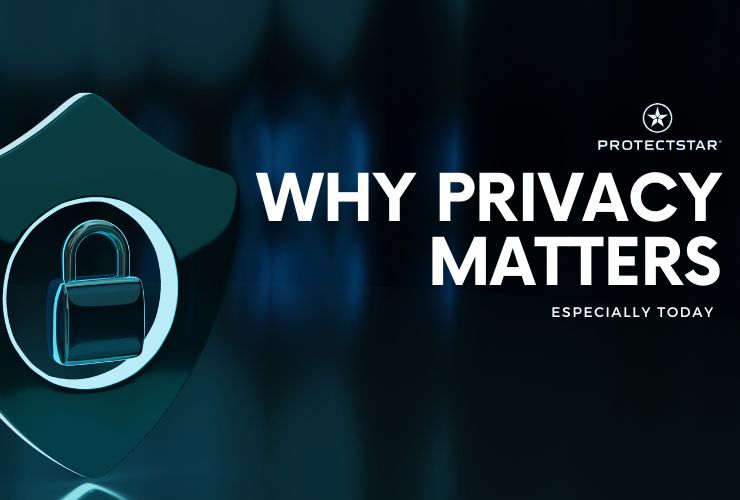Why Privacy Matters, Especially Today

Our personal information is constantly being collected, analyzed, and used. While it's easy to think "what do I have to hide?", privacy isn't just about secrecy. It's about control, freedom, and even safety. Let's dive into why privacy matters, even for those who aren't worried about keeping their activity off anyone else’s servers.
Owning Your Information
Imagine your life as a book. Some chapters you share openly with friends, some with family, and a few are deeply personal. Privacy allows you to decide who gets to read which chapters. Nowadays, your information is like scattered pages – search history, browsing habits, even health data. When you lose control of these pages, you lose power over your own narrative.
How Does Lack of Privacy Hurt You?
- Targeted Manipulation: Companies track your data to bombard you with personalized ads. This can be harmless, but it can also be manipulative, influencing your purchases and even your opinions. You may not react to the first couple of ads, but over the long term and as you keep getting exposed to them, you subconsciously orientate towards the product if you should ever feel like you need it.
- Discrimination and Bias: Imagine getting denied a loan or job because your online activity was misinterpreted by an algorithm. Data analysis can be biased, leading to unfair consequences.
- Chilling Effect on Free Speech: Knowing you're constantly monitored can lead to self-censorship. You might avoid expressing unpopular opinions online for fear of repercussions.
- Security Risks: Data breaches are common. The more information exposed, the greater the risk of identity theft, fraud, and even physical harm.
Privacy vs. Control
Some argue that endless privacy settings give you control. But have you ever scrolled through pages of confusing options, just wanting to read an article? True privacy shouldn't require constant vigilance. We need technology that respects privacy by default, not puts the burden on us.
What Can You Do?
- Be Mindful of What You Share: Think twice before posting personal information online.
- Use Privacy-Focused Tools: Explore privacy-focused search engines, browsers, and messaging apps.
- Stay Informed: Learn about data collection practices and how to protect your information.
Best Practices for Protecting Your Privacy
Here are some key actions you can take to protect your privacy across different devices and situations:
- On Your PC:
- Manage Browser Settings: Most browsers allow you to control cookies, pop-ups, and location tracking. Disable settings that track your online activity unless absolutely necessary.
- Beware of Phishing Attacks: Don't click on suspicious links or attachments in emails, even if they appear to be from legitimate sources. Phishing emails often try to trick you into revealing personal information.
- Use a Virtual Private Network (VPN): A VPN encrypts your internet traffic, making it more difficult for third parties to track your online activity, especially on public Wi-Fi networks.
- On Your Phone:
- Review App Permissions: Many apps request access to features like your location, microphone, or camera. Only grant permissions that are essential for the app's functionality.
- Disable Location Services (when not needed): Location tracking can be a privacy concern. Turn off location services for apps that don't require it.
- Be Mindful of Downloading Apps: Only download apps from trusted sources like official app stores. Read reviews and privacy policies before installing any app.
- Sharing Information Online:
- Think Before You Post: Once you share information online, it can be difficult to erase completely. Consider the potential consequences before posting personal details or photos.
- Beware of Oversharing on Social Media: Social media platforms collect a vast amount of data on your activity and preferences. Be mindful of what you share publicly and adjust your privacy settings accordingly
What to Do If You Think You've Been Hacked
If you suspect you've been hacked, don't panic! Here are some initial steps you can take:
- Change your passwords: Update your passwords for all potentially compromised accounts, including email, bank accounts, social media, and any other service that uses a login.
- Scan for malware: Run a reputable antivirus or anti-malware scan with our Antivirus AI on your devices to identify and remove any malicious software.
- Report the incident: Notify the relevant platforms or institutions about the suspected hack. This could include your bank, social media platform, or email provider. They can help you secure your account and investigate further.
- Consider a credit freeze: If you're concerned about financial fraud, placing a freeze on your credit report can help prevent unauthorized access.
- Seek professional help: If you're feeling overwhelmed or unsure of what steps to take next, consider seeking assistance from a cybersecurity professional.
Privacy isn't about being a hermit. It's about having a safe space to be yourself, explore ideas, and make choices without undue influence.
What do you think on the matter? Let us know in our social channels @protectstar on X and Linkedin and @protectstar-inc on Reddit!